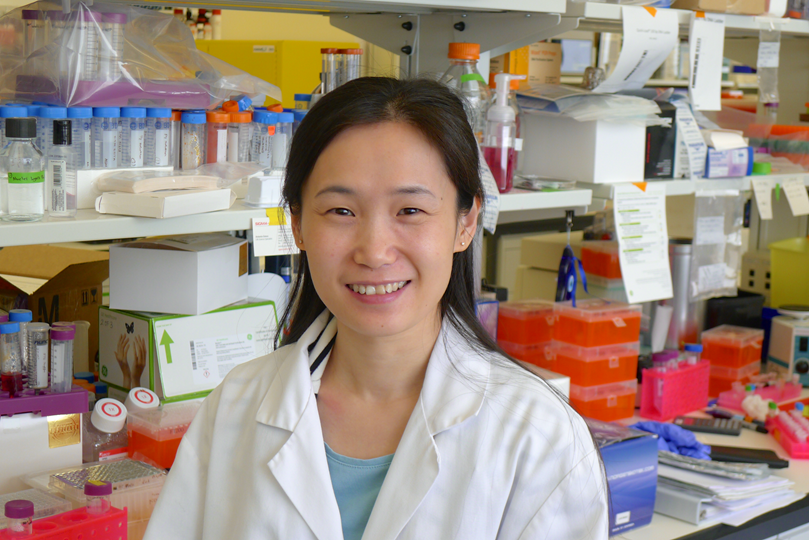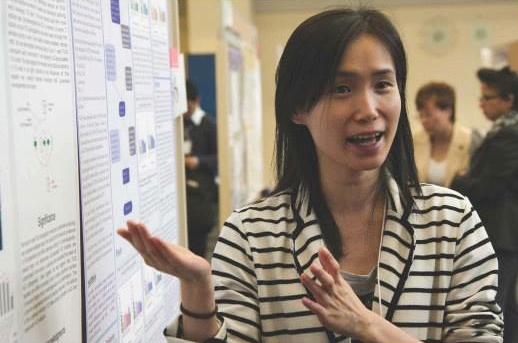
PhD student and researcher Yueqin Zhou in the lab.
The story of the student who made an amazing discovery
While doing research at the Manitoba Institute of Cell Biology (MICB)
Walk onto the fifth floor at the Manitoba Institute of Cell Biology (MICB), and you’ve entered a lab where U of M graduate students in the College of Medicine are doing groundbreaking work.
Located at 675 McDermot Avenue, the MICB is a research institute partnership between the university and CancerCare Manitoba.
The lab has a team of 17 senior scientists, including doctors who have developed some of the world’s most effective cancer treatments. They supervise and mentor students doing their MSc or PhD work in cancer genetics and blood disorders.
UM Today sat down in the lab with some students to find out more about what they do and what they love about research at the University of Manitoba.
Here’s one of the student profiles. We’ll feature two more later this week.
Yueqin Zhou, PhD candidate, biochemistry, College of Medicine
Yueqin Zhou recently made an amazing discovery in the course of her research on cancer genetics with Geoff Hicks (PhD/’91) — she helped find a gene related to amyotrophic lateral sclerosis (ALS; also known as Lou Gehrig’s Disease) that helps to slow down the progression of the disease.
ALS is a muscle-wasting disease that locks a person inside their body as their ability to move, breathe, and swallow decreases until they are paralyzed. Patient prognosis is not good — 80 per cent of people die between two to five years after being diagnosed.
Zhou’s impressive findings were published in the medical journal PLOS Genetics in October 2013, and the media picked up on her discovery.
“I went home that night and watched the news on TV,” Zhou [MSc/’05] told UM Today, sitting on a stool in the lab surrounded by racks of test tubes and measuring instruments.
“I saw this man on the news who said he’d been diagnosed with ALS five years before, and hadn’t had any good news since then.
Zhou: ‘He told the reporter that my discovery was the first good news he’d heard in five years.’
“He told the reporter that my discovery was the first good news he’d heard in five years.”
Thanks to the media coverage, a woman in another province heard about Zhou’s research.
The woman’s husband had ALS and the family was so moved by the possibilities of Zhou’s research, the woman called Zhou at the lab to tell her just how much her research meant to ALS patients.
“I was so surprised when she called — I asked her how she got my phone number, and she said she Googled me!” Zhou said with a laugh.
Zhou: ‘I’ve never met these people, but it showed me that what I’m doing is really helping people.’
“I’ve never met these people, but it showed me that what I’m doing is really helping people.”
Zhou counts the excitement of publishing papers, recognition from her peers, and hearing from people with the disease as her favourite parts of doing graduate research with the University of Manitoba.
–Erika Miller, Intern
Research at the University of Manitoba is partially supported by funding from the Government of Canada Research Support Fund.







